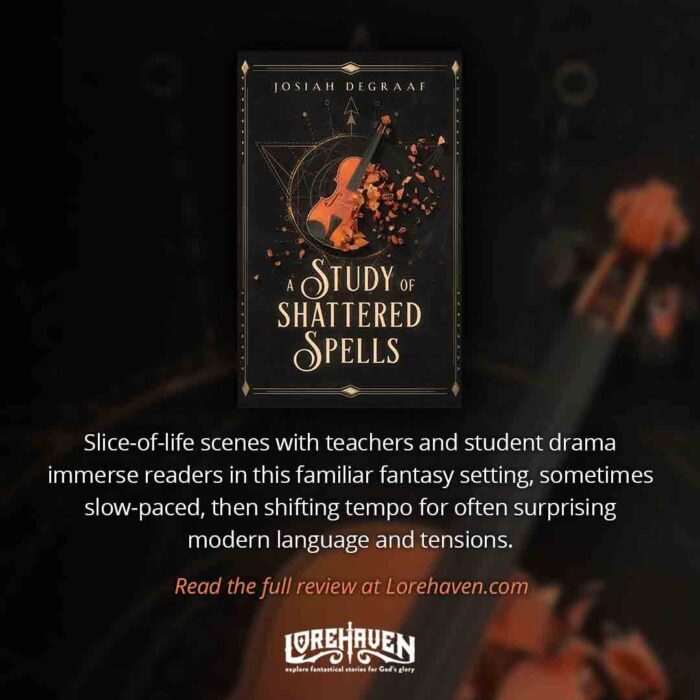Meet Your Family’s Next Favorite Film: Kiki’s Delivery Service
Hayao Miyazaki’s films offer pure cinematic magic. This Japanese director’s tales, produced through Studio Ghibli, present entrancing, hand-drawn works of art, laden with weirdness, wonder, and traditional Japanese ethos. I myself have been spellbound since teenage-me saw Spirited Away (2002).
Most magically of all, Miyazaki films can mesmerize even the most hyperactive three-year-old. I experienced this in person when Ponyo (2008) released. The theater was full of squirming, chattering children, until the film started rolling—and the room went completely still. Anyone who has shown a preschool viewer the studio’s earlier film, My Neighbor Totoro (1988), will notice the same effect.
These films not only entrance children, but also point them toward God’s common grace—objective truths that C. S. Lewis dubs “the Tao.”1 These days, the Miyazaki film I’m loving most for my three girls is Kiki’s Delivery Service (1989).
Note: To explore this magical world, we’ll need to cast some spoiler charms.
Serving Kiki, sulking Kiki
I did not watch Kiki as a child because, pre–Harry Potter, I felt uncomfortable at the idea of Kiki being a good witch. However, the story shows Kiki as a witch not to promote witchcraft, but to set Kiki apart as feeling different from other kids. (As you will see, this is actually a major reason to love the film.)
Kiki’s coming-of-age story works from the premise that thirteen-year-old witches must follow the tradition of moving alone to a new city for a year of independent training. Most witches have a special talent, like potions or fortune-telling, but Kiki sets off with nothing more than her mother’s broom.
She may not have a witch’s talent, but Kiki is a naturally generous, helpful girl. When she notices a baby’s pacifier left in a bakery, Kiki volunteers to return this to a young mother. This begins the titular delivery service, in which Kiki conveys packages for customers via flying broom.
However, we also learn that Kiki is extremely self-conscious about not fitting in. Even before leaving home, she complains about having to wear the witch’s traditional black instead of more popular bright colors. She wistfully ogles flashy clothes in shop windows. Most of all, she becomes irritable when confronted with peers who wear the latest fashions and travel in a loud, confident “popular kids” group.
For much of the film’s first half, Kiki oscillates between these two extremes: selfless service to others and paralyzing self-consciousness.
In every act of service, she gains personal confidence and friendly allies.
In every moment she encounters kids her own age, her buoyant spirit collapses and she becomes snippy, sulky, angry, or depressed.
Miyazaki layers these moments with an artist’s skill.
What must Kiki learn?
So it is that Kiki bounces from the freedom of self-forgetfulness2 to the implosion of self-consciousness. With every appearance of Tombo—a boy Kiki’s age, who hangs out with the kids Kiki envies—he unwittingly seems to worsen Kiki’s crisis. Kiki’s tension breaks her down until finally she finds she can no longer fly on a broom. She can no longer hear her cat’s voice. Her magic has left her.
The crisis ends when Kiki’s friend Ursula encourages her to trust in her spirit. Kiki does this in time to save Tombo, who is dangling from a runaway dirigible.
After such a summary, we could conclude Kiki’s Delivery Service ships to us the same tried-and-not-quite-true adage as the typical Western coming-of-age story: “Believe in yourself.” The story’s problem, however, is that Kiki’s very perception of herself has been skewed from the beginning. Kiki is actually happiest when she forgets herself, not when she scrutinizes herself harder.
So what actually makes Kiki overcome her crisis? Is it truly “trusting her spirit”?
‘Trust in your spirit’?
We can be tempted to hear Ursula say “Trust in your spirit” and stop listening. Oh, it’s one of those movies. But the rest of the conversation (and film) won’t let things be that simple.
In their conversation’s true center, Ursula relates Kiki’s magic to her own art, saying that she also lost her abilities until she had a realization: “[My artworks] were copies of paintings I’d seen somewhere before, and not very good copies, either,” Ursula tells Kiki. “I had to discover my own style.”
This is profound for Kiki. She’s felt so much angst from comparing herself to others. She wants to be a copy of something she’s seen before, and hurts when she’s reminded that she’s not.
Yes, these friends also talk about “trusting your spirit” and finding your own inspiration. Ursula says the same spirit makes her paint and makes Kiki’s surrogate mother Osono bake. But in this context, it’s not a “follow your heart” message; it’s an “embrace your calling” message. Following your heart is usually about what you think you want. Embracing your calling is about the good works only you can do.
The true source of Kiki’s magic
So what does “trusting her spirit” actually look like? The scene of Tombo’s distress is when it all comes together for Kiki, but it doesn’t seem to contain any profound personal revelations from Kiki. She simply sets out to save a friend. This friend happens to be the boy who has always provoked the most self-consciousness in her—but this time, she’s not thinking about herself at all.
To save him as he dangles precariously from the renegade blimp, she needs to fly, which requires two things: a broom and her magic.
Kiki no longer has her mother’s broom, so she borrows a street-sweeper’s broom. Previously she has been anxious about appearances. This time, Kiki unhesitatingly chooses the dirty, bedraggled broom of service. In front of a crowd of staring onlookers, she desperately whispers, “Fly.”
This is the moment she regains her magic. It shows, as one of my friends recently noted, “Helping people is Kiki’s special talent.”
Kiki lost her magic only when her comparisons of herself to other people turned her focus upon herself. She regained her magic by looking to others—not seeing them as models to copy or to compete with, but as people to serve.
Coming of age with Kiki
Under the film’s familiar theme of “trusting your spirit” is a stronger heart of service. The story’s pulse beats with hard work, from the word Service in the title to the epilogue-like end credits. There, we feel gratified to see Kiki happy, comfortable with herself and others. But we also see a knowing wink from Miyazaki: Kiki still rides her street-sweeper’s broom. Her humble service has carried her where she wants to be.
- Lewis defines the Tao in The Abolition of Man: “It is the doctrine of objective value, the belief that certain attitudes are really true, and others really false, to the kind of thing the universe is and the kind of things we are” (page 29 in the 1947 edition). ↩
- I borrowed this phrase from the excellent Tim Keller pamphlet with the same name, from 10Publishing, 2012. ↩

































Great post! I recently watched this for the first time and loved it. 🙂
Thank you! It’s a precious film. I think I’ve enjoyed it more every time. There are so many subtle details!